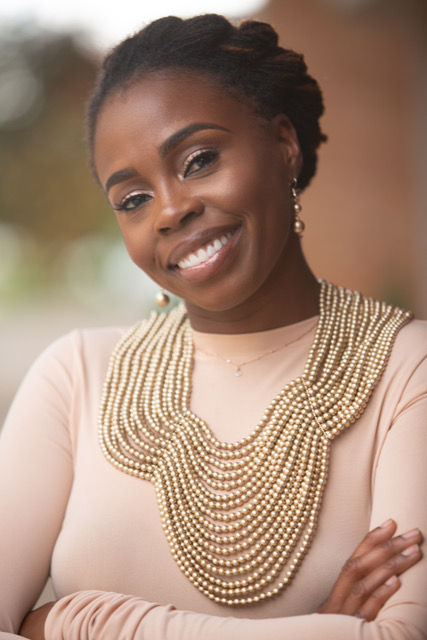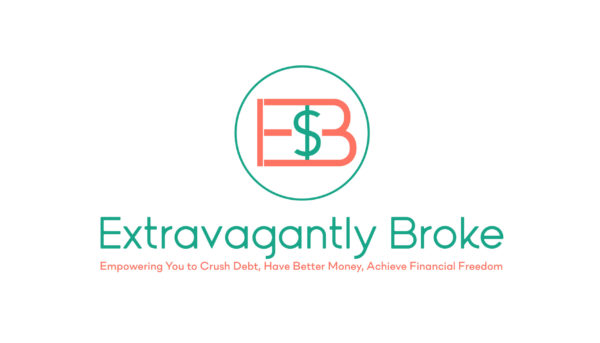The “debt slaya” is part four of my Empowering women series. So if you think that YOUR debt is insurmountable, then it’s time you met Naseema. Naseema’s debt payoff journey has taken many twists and turns. She went from owning several real estate properties to married, to divorced, to a single mom. And she even had multiple foreclosures.
Yet, through faith and intentionality, she was able to flip the script. Once she realized that she didn’t want debt to be the legacy she left for her daughter she became a mom on a mission! THEN, she was able to pay off ONE MILLION DOLLARS of debt in less than 3 years, all while working as a nurse. Talk about a debt slaying shero!
Related Post – Part One: The Best How To Budget Advice From A Self-Made Millionaire.
Related Post – Part Two: How To Overcome A Crisis And Still Achieve Financial Independence.
Related Post – Part Three: How To Conquer Money Challenges and Improve Your Finances Now.
For my video lovers, you can check out the interview here.
But, for those who prefer a good read, then this is for you. (Text has been mildly edited for readability,)
So, let’s dive into Naseema’s story and see how she accomplished this seemingly impossible feat!
Table of Contents
Can you tell everybody a little bit about your background?
Sure. So my name is Naseema McElroy. I’m a labor and delivery nurse by trade. I am known as the “Debt Slaya” for paying off over $1,000,000 in debt in a little less than 3 years.
I have a platform called financially intentional. It’s where I encourage people to live life by intention. And I also share techniques that I’ve learned along the way on my path to Financial Independence.
Now, I have a new goal. I want to see how I can make an impact coming into this brand new decade.
So, from 2020 to 2030, I really want to produce at least a thousand millionaires.
And you know, I think this is an ambitious, yet doable goal. I just really want to open people’s minds up to what is possible. But, also give people the tools to really be empowered and change their family tree.
Wow! 1,000 millionaires! That’s a great goal! I want to be on that list!
So, how did you get interested in personal finance?
I just knew that I was uncomfortable where I was at. You know, I was a nurse making really good money. But, I didn’t have anything to show for it.
I didn’t have anything in place for me if something were to happen to me. And I had a one-year-old at that time. So, I really started getting serious, and knew I wanted to do better!
And so, on my one hour commute back and forth to work I was like, let me [#1] listen to a podcast that’s going to help me with my money. I thought it was because I didn’t know how to invest, and that’s why I was so broke.
So I started researching podcasts, and low and behold Dave Ramsey came up. I started listening to Dave, and I realized what was [really] holding me back the most was this huge debt burden that I had.
And so I set out on a path to pay down my debt. Along the journey, I started really getting motivated and inspired. And I knew that the freedom that I was feeling was something that I wanted to share with my friends and family.
So, I was like, you know I’ve been learning these things about money. And it’s been really empowering. Do you guys want to know more about what I’m doing?
And they were like, yeah! But, I don’t like to repeat myself, so I’m going to create this blog. And I’ll have an Instagram and Facebook. Then you guys can follow along with my journey, and I’ll share all my tips along the way. And they were like, cool!
And so that’s how financially intentional was born. That’s how my passion for personal finance was born. Plus, I’m not that kind of person that wants to keep things to myself. And then, I also feel like the only way that you can truly learn something is if you’re able to teach it back to someone else. And so, that’s my interest in personal finance.
So, financially intentional, how would you explain that?
You know what, that’s funny! You’re the first person to ask me that.
So, financially intentional came from when I was listening to Dave Ramsey and a lot of other podcasts. And the thing that I heard repeated over and over. The thing that really made the difference in most people’s lives — is that they got intentional.
And I was just like okay, so that should be my platform. Everything has to be about intentionality.
So when I was coming up with a name for my business I searched for, Be Intentional. But that was already taken. I was looking through all the domain names and I [said], okay, let me get creative.
So I was brainstorming with one of my coworkers, and we were throwing together names. And she [suggested], what about “Financially Intentional?” That sounds good. So I was like, let’s see if that’s taken. Plugged that in, not taken. Financially intentional, it is!
Hey, does she get a cut (haha)?
No. But you know, I need to go back and give her a shout out for that. And actually, my first photos are ones that she actually took. I was like, oh, I need some pictures. And she said, you know I do take pictures as a hobby. So, we did a little photoshoot and that’s where my branding pictures came from.
Thank you, Terri! There’s your shout out. Thank you, Terri!

Can you tell us a little bit about how you slayed your debt?
Sure, so when people hear a million dollars in debt, they’re like WHAT!
A million dollars, that’s crazy!
So I have to preface that by saying, this is like a window of my life. A time where I had a house in the San Francisco Bay Area. And you know medium home prices here are about $700,000.
And so, that’s where a huge majority of that debt came from. So, on the bookend of my story are some real estate transactions that happened. So [#2] selling two homes helped me.
But the journey that I really like to focus on is…
- In between, what did I do?
- How did I change my approach to handling my finances that helped me pay down the debt?
And that was by using two techniques that Dave Ramsey encourages which are:
So, zero-based budgeting took me a long time to learn. So, for anybody that says that they’ve tried budgeting and it never worked — it takes a while, okay.
It takes at least three months. And so, zero-based budgeting is where you give your money an assignment in advance.
- So if it’s November, then you need to have your December budget ready.
- And every one of those dollars of income that you have needs to have an assignment. It needs to have a plan.
It doesn’t mean that you’re spending your bank account down to zero. That’s not what zero-based budgeting is. It means that every single dollar is accounted for.
No dollar left behind.
So, whether that’s going towards savings or your debt elimination goals, or whatever it goes to. Everything has an assignment.
And you should have an assignment for fun things.
You should have an assignment for things that come up.
And every month needs to look different.
The biggest mistake that people make in general, when it comes to setting financial goals, is saying that...
I’ll just throw whatever I have left at the end of the month at my debt.
But, whether it’s for savings, investing, or paying down debt — at the end of the month, you’re not going to have any money left. So, what I had to do was [#5] set a goal.
I set a goal, and this is pretty ambitious, so I don’t want people to get thrown off by the numbers. But, I’ll share the numbers here.
My goal was to put $6,000 a month towards my debt Every Month.
And so, at the top of my budget, it would be that $6,000. Then, I adjusted how much I spent on food, gas, vacations, EVERYTHING, around that.
And nine times out of 10, I hit that goal. And often exceeded that goal. But, it’s because I set that as a goal, and I adjusted my life around that. And so, that’s zero-based budgeting.
The other thing that I did was the debt snowball. So the debt snowball:
- Is making sure that you list everybody that you owe.
- List out everything that you owe.
- List all your debts from the smallest balance to the largest balance.
- What you do is attack that smallest debt. And every single dollar that you have you throw at that.
- Then pay the minimums on the rest of your debt until that smallest debt is done.
And it’s called a snowball because once you pay off one debt, you now have that minimum payment to help you pay off the next debt. And so that just compounds. And then it starts to go faster and faster and faster and builds up like a snowball.
[By the time] you get to those larger debts, you have a good sum of money as a baseline that you’re going to throw at those remaining debts.
So those are the two things. The debt snowball and the zero-based budget that really helped me to slay those debts.
And then, for the bookends like I said, in the beginning, I had a condo in Southern California that I sold. Plus, I decided to sell my primary residence, and use that to pay off the remainder of my debt.
That was pretty smart. Sometimes a home can be your biggest debt. And the bigger the home, the bigger the debt!
So, as far as your home goes, did you purchase another home?

So yes, I paid this all off in November 2017. And in the last two years, I have moved four times.
I moved, and I rented for a little while. Then I moved out of state, and I bought a home. Then, I sold that home and moved back. And now I’m renting again.
But, I’m renting very intentionally.
The place that I found has a downstairs unit that is totally separate with a separate entrance. So, we’re able to live in the upstairs. And we decreased our housing expenses by 1/3 by [#6]renting out our bottom unit.
Now, we are planning to purchase again. We’re going to do another house hack where we buy a multi-family home and probably live in the smallest unit.
Then, rent out the rest and hopefully get our housing costs down to zero. That’s our new goal. So, we are just stacking [cash] to be able to put a down payment on that.
I like that you said that you are stacking cash. Because that’s so important to get as much money upfront so that you’re not always behind. That’s a good house hack. And I love that you’re renting your bottom room unit so that you’re actually earning income too. So, some smart money moves there.
And all that rent just goes straight into a bank account that is part of our savings fund for this house.
What has been the most rewarding part for you of your financial journey?
Honestly, to see the wins of other people who follow me along the journey but have also taken action on their own.
One person in particular that stands out to me and she was actually at FinCon is somebody named Crystal. And she just found me last December.
She purchased my program and went through all the steps. Then:
- She ended up becoming debt-free herself.
- She is at like a 50% savings rate,
- Closed on her first property to house hack.
- Is now well on her path to Financial Freedom.
That’s just one of many stories. But just hearing the feedback, that I inspire people and motivated them to take action with their finances, is really the best reward.
Wow!
What has the transition been like going from nursing to personal finance?
You know, it’s awesome! And, I’m still a nurse. [#7] I still work 3 days a week as a labor and delivery nurse. But I’m able to marry the two things.
Nursing is my passion, just like personal finance is my passion. The niche portion of my brand is called Nurses On Fire. It’s a podcast where I share stories of nurses, or I share tools.
Of course, these things can benefit anybody who listens. But I wanted to hone in on nurses because who do you know in the personal finance space that’s a nurse?
I want to be the face of personal finance for nurses because we have got to do better with our money!
It’s a woman-dominated career field, and we have to be more empowered as women…
- Because we’re more likely than men to take on debt.
- It’s harder for us to get good footing [with our finances] because of the years that we have to take off to have kids.
- We are also paid less.
So I want to give people the tools, especially nurses, to be able to overcome those things. And, to change the trajectory of their family finances just like everybody else.
So yeah, I married the two. So, still a nurse! And when I’m at work, I can fully be a nurse. And in the personal finance space, I can do this.
It works perfectly! And you know what, it’s good! Because as a nurse, and having known so many nurses, you know, we’re professionals — but yet, we don’t know how to manage our money!
Yes! We can manage Hospital budgets. And we can manage unit budgets. But when it comes to our own coins, we just don’t know what to do.
I know there are professional women just like myself who are struggling with their finances and don’t know what to do. You expect that you should be living a certain lifestyle. And you’re pretty much doing what everybody else is doing. But of course, you don’t know what’s going on inside somebody else’s finances. Even though things look good on the outside. But, they may be struggling on the inside.
That’s kind of like how I was. That’s why I called my sight Extravagantly Broke. Because I may have looked like I had whatever going on the outside. But, when it would come to bill-paying time, it was like (AHHHH) where’s the money?!
So, that would have been great to have years ago. Somebody like you out there as a role model to give me some direction. So, that’s excellent!
So what are some of the debt struggles you’ve noticed among the nurses you coach? Is there any commonality that you have seen?

I do provide coaching under the financially intentional umbrella. I coach mostly professional women.
There are a lot of struggles, but most of it stems around mindset and not thinking that they can do it.
A lot of it is just what you’re surrounded with, right?
We’re surrounded by consumerism.
We’re surrounded by (the idea) that success looks like:
A car.
Or a house.
Or these things.
So, a lot of it is mindset stuff.
You know, people say that they struggle with budgeting. People say that they don’t know how to invest.
But at the core of it all is the negative belief that they’re not worthy of receiving or being abundant and having wealth.
So, those are the challenges.
You know, people want me to tell them how to get on the right path financially. And I provide the steps. And I provide those systematic tools to [help you] do what you need to do. But, what’s really at the core of changing your trajectory, is getting your mind right.
Absolutely! A mindset shift. That’s what it took for me to get off the debt train and get on to the savings train.
So what advice do you have for women who may be struggling right now with debt?
First of all, we beat ourselves up about the money mistakes that we’ve made.
I really want people to get into a place of gratitude.
And just think of all the things that getting into that debt has provided them.
So like for me, I had a whole bunch of student loans. And so I was like, you know what, because of these loans I’m able to work as a nurse and earn this amount of money, thank you so much!
So that way, it’s not like this negative thing. And then you can move forward from there. You can say, okay, I’m at a place now where I want to build. So now we focus on building. Because now we’ve got that [negativity] behind us.
Girl, I love that! That’s, Brightside perspective!
Even when you’re faced with struggles, you know, there are ways to get out of it. But what’s going to hold you back is focusing on the negativity around it.
Because, at the end of the day, your mind doesn’t decipher between positivity and negativity.
And so if you’re focusing so much on debt [your mind is] going to keep on the debt as this thing. Then, it’s going to keep on putting you in places where you’re going to get into debt. So, just mindset again.
Yes, I absolutely agree! You have to change your thinking in order to change your behavior.
Do you have any advice for women who aspire to be entrepreneurs?
Hahaha! This ain’t for everybody! It ain’t pretty!
I keep it real. That’s the only way I know how to be.
And entrepreneurship is something that’s glamorized.
And you see the reels of people making millions of dollars and all this kind of thing. But, number one, you really have to understand why do you feel like you want to be an entrepreneur? Why do you want to do this?
I would just bring the boat closer to the shore before you take a leap.
Make sure. Because with entrepreneurship, your income is not guaranteed!
You need to make sure that you have money saved up to cover your four walls. To cover your expenses. Make sure you have your personal finances at a place where [you can comfortably take that leap]
That’s something that I’m still trying to master on my own. And the other thing I want people to consider is, do you really have to be 100% entrepreneur? Because:
- I love that my job pays for my health care!
- I love that I have a 401k that I can benefit from that takes down my taxable income!
- I love that I make a lot of money as a nurse and I don’t have to think about it because now it’s second nature!
And it’s easy for me! This right here, entrepreneurship, is hard!
So, think about is this something that you 100% want to give up. And the beauty of being a nurse is that I can go down to working four shifts a month if I want to.
But:
- I still have that steady income.
- I have insurance.
- I have things that are protecting my family.
So, consider that. It’s not all or nothing. You can do both.
Absolutely! Because money is irregular when you’re an entrepreneur. You don’t know when you might get paid again.
But, if you want to live that life — set it up by Design. It’s all about living life by Design.
A lot of times, people live life for the weekends. Or they live life for the 10 days of vacation they get a year.
But, I challenge people to actually Create Your Life by Design. And work all this other stuff around it.
So do you have any events, promotions, or activities going on?
Yeah, so I was featured in Forbes. And that was awesome!
I’m opening back up my membership community, which helps people transition to Financial Freedom. [It includes] all the steps like paying off debt, budgeting, finances, and all that stuff.
But my goal is to really ramp that up. So that I have this campaign of core people that are on their path to create $1,000,000 by 2030. Now, I might change that branding around. But that’s my goal for now.
I really want to create millionaires.
That’s an excellent goal!
So where can people find you?
At financiallyintentional.com. My handle is @financiallyintentional everywhere except for on Twitter it’s @financialintent.
Thank you so much for your colorful insight Naseema!

Naseema is the founder of Financially Intentional, a blog about personal finance and living life intentionally. She discusses how taking control of her finances has enabled her to overcome bankruptcy, divorce, and break the cycle of living paycheck to paycheck. She shares her lessons along her path to help others benefit from the freedoms of financial independence. She paid off $1 million in debt and grew a six-figure net worth in three years without living in deprivation.
Don’t wait! Click here to start your debt-free journey by scheduling a FREE 30-minute discovery call.







This is so inspiring! That is surely my goal.
It just goes to show that debt freedom is possible if you’re willing to do what it takes! Thanks for your comment.
No debt is too big to settle as long as you put in effort.
Absolutely correct! Thanks for your comment!
Love this! Amazing what you can do if you’re serious about savings!
It is amazing! But it just goes to show that anyone can make it happen!
Such an inspirational post! If she can get out from under $1M in debt then anyone can! Just like she said, you need to get intentional!
You are so right Kari! All it takes is determination and being intentional! Thanks for your comment!